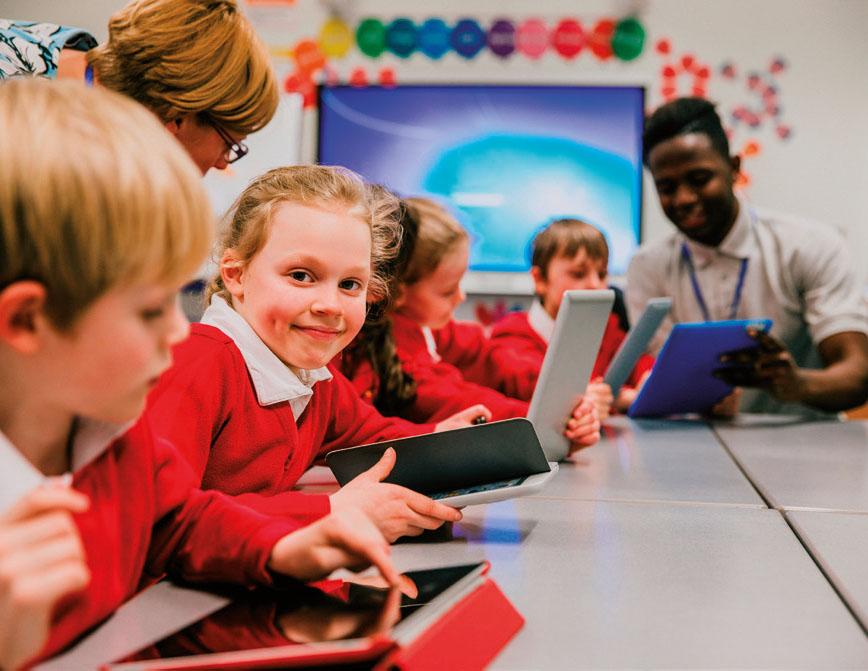
If you're about to embark on your first year of teaching, there are a lot of different things that a lot of different people will be saying to you. With all the clichés and anecdotes, it can be hard to decipher any sense from this torrent of noise. I remember this feeling; in fact, I still feel it today – one year on from where you are now. It is important to remember that each experience, including yours, is unique and valid – only you will know what's best for your situation. That being said, here are some clichés and anecdotes of my own that I would like to share.
‘Does it help the children?’
Firstly, keep it simple. I, like many others, was blissfully caught up in the trap of social media last summer and couldn't wait to get into my classroom to put up the gallery-worthy displays that I had seen plastered over Twitter. I was also scrambling through blogs looking for the latest intricate activities to try out. ‘I will be that teacher,’ I thought to myself, ‘The one who can impress all the other teachers.’ I was your typical, young, revolutionary ECT. Or so I believed.
When you start teaching for real, you quickly realise just how few precious hours there are in a day. As well as this, you are brought down to earth by the reality of children. They don't need every second to be filled with non-stop action; they don't need to be surrounded by mind-bending displays, and they certainly don't care what other teachers think of you. What children need in school is to be safe, valued and (surprise, surprise) able to learn. That's it.
I was overcomplicating everything. I was spending most of my time on things that would have negligible impact on pupils. Consequently, the things that did matter started to suffer. That's when I had to remind the bloke in the mirror of what I was there to do. I realised that the little time I had needed to be spent in the most efficient way possible.
I looked at things differently, I mapped out what was helping and what was not. And then I simplified everything. My displays became functional and resourceful – a visual to aid children rather than to distract them. My lesson plans were streamlined to the parts that contribute to the children's learning. I supplemented this all with simple pleasures that didn't need hours of prepping, and my children loved it. We sang short songs; we would perform a clapping band and – our personal favourite – we introduced class DJ. Things became clearer for me and the children, both in their learning and their wellbeing. Above all else, I had time to do the things I needed.
Always ask yourself one question before doing anything: ‘Does it help the children?’. If the answer is no, don't waste your time.
 dglimages/AdobeStock
dglimages/AdobeStock
Teaching is an art
The second thing I have learnt this year is that music encapsulates the essence of education itself. Music is an art. Yes, some will argue it comes down to science, maths, and logical patterns, but the awe-inspiring nature of music is only possible because of humanity's ability to comprehend noise as emotion. And that, in my view, is the definition of an art. It speaks to the soul; it sparks feeling.
For the same reasons, teaching is also an art form. There is science behind education, such as the psychology, the science of memory, synapses and so on. But education is an art. It will spark an emotion. Happiness, sadness, fear, surprise, anger, calm, inspiration, motivation – the list goes on. You want to draw these out of a child, allowing them to learn the curriculum but also what it means to be a human being.
What has this got to do with you, me and ECTs? As music specialists, we already have an advantage over our peers. We have practised the skills and artistic nuances required to teach for a long time. In fact, since the first time you sang a note, plucked a string, or blew a mouthpiece, you have spoken to those around you on a deeper level and taught them to feel an emotion. That is something that I have held on to on so many occasions this year. When I felt disheartened, useless, or that I should just give in, I reminded myself that teaching is just one big performance and I've had all the rehearsals I need. I'm a musician and a teacher – nothing can stop me.
Keep it simple – just do it as you practised, and you'll be just fine.
Oh, and have fun!




